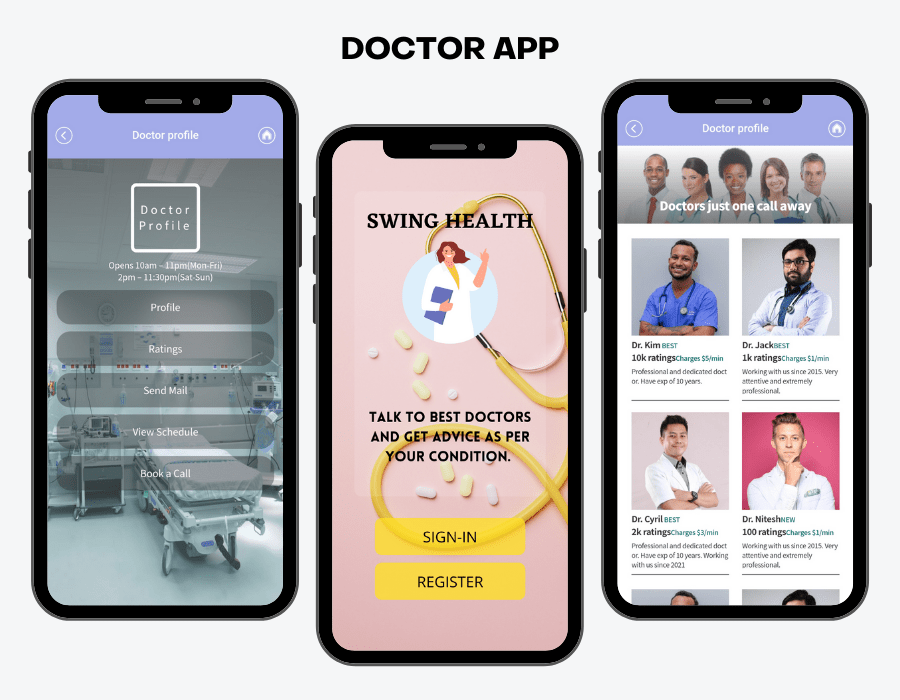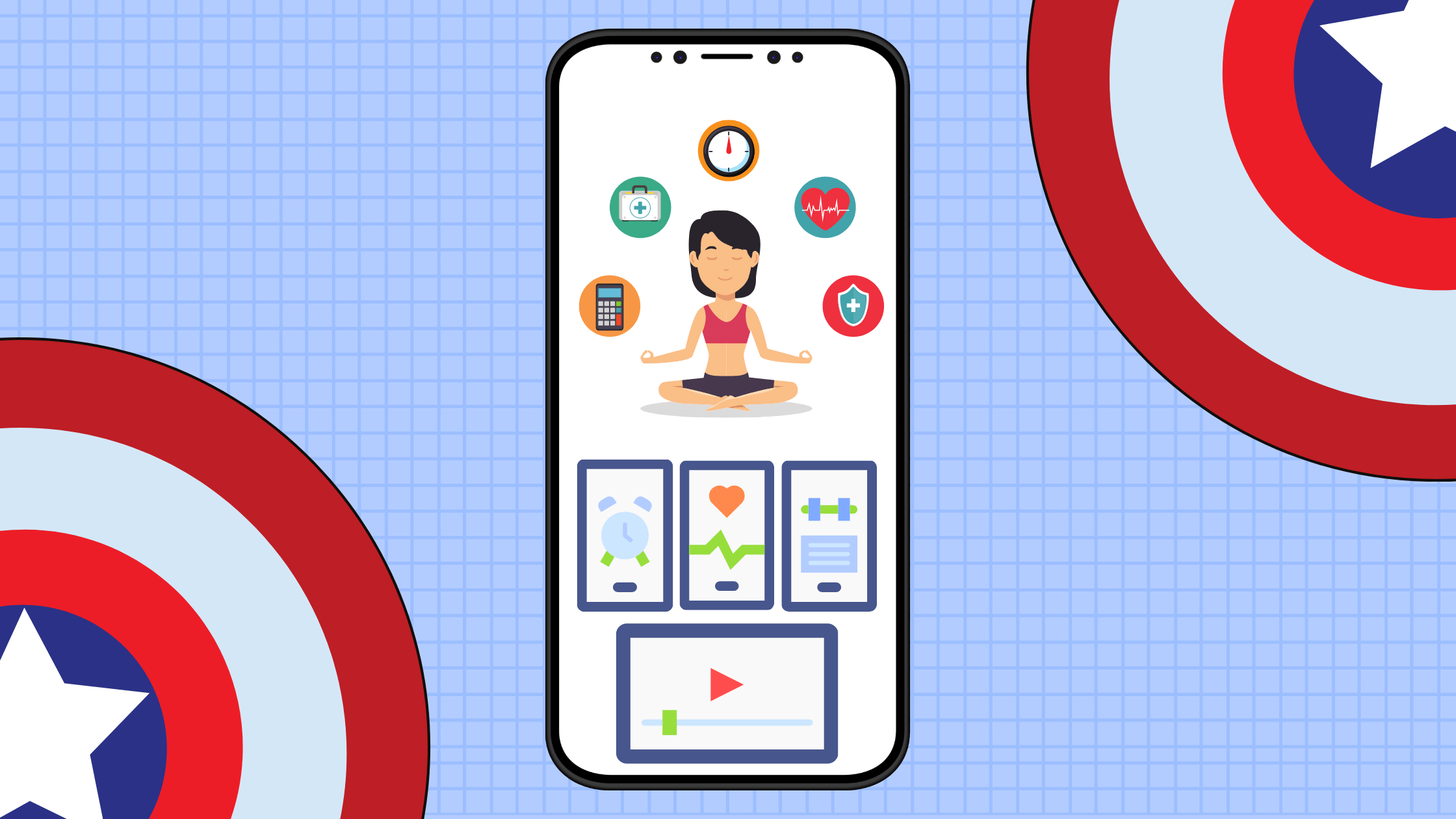Mobile health apps have been growing steadily over the past few years.
Apps for health are usually divided into three main categories:
Nutrition-tracking apps, sleep-tracking apps, and stress-management applications are all examples of general health and wellness apps.
Telemedicine apps that allow licensed doctors to deliver virtual patient care.
Brain training game apps that help in boosting memories fall in the category of health apps, the new way the relieve the mind.
Further, apps may help people track their personal health concerns, allow healthcare practitioners to remotely report on a patient’s personal health information, aid in medication management, and much more.
Even though they all are different but main objective behind them is common. They assist us in leading better lives!
AND NOW! The Coronavirus pandemic surely made such health apps an essential part of life. For example, Vaccination and Tracking apps.
In October 2021, Aarogya Setu was the most-downloaded health and fitness app in the Google Play Store worldwide- Statista

This article explains how mobile health applications are enhancing our lives and general health.
Let’s get started:
Advantages and Benefits of Health Apps:
1. Reduction in Healthcare costs:
In 2015, the IQVIA published a report on the impact of consumer-oriented healthcare practices on the healthcare system.
While this study focused on diabetes prevention, diabetes management, asthma, cardiac rehabilitation, and pulmonary rehabilitation, it was found that the healthcare system could save $46 billion a year if healthcare apps were used to treat all ailments.
These and many more health disorders may now be managed with the aid of health apps.
What is the importance of this?
Eventually, as more individuals seek preventative care to stay healthy, this can lower total health expenses for both patients and providers.
Following are a few ways in which health apps help in reducing costs of healthcare:
- Reduces Cost of Medical Reports
- Cutting Human Resources cost
- A Patient Can Know Their Condition Well
- Save Time: Time Is Money
- Mobile Tests
2. Easy data collection and monitoring
These apps make it easier for healthcare providers to collect and access data from patients. Patients’ information, medical history, vitals, medications, and lab results can all be accessed remotely by hospitals that employ these apps.
Rather than manually entering test results, these apps import test data for health practitioners. They can also give medication advice and reminders, as well as assist physicians in avoiding unnecessary testing and costs for patients.
The Patient Tracker app can be used to collect data of patients to track general information.

Health apps make it easier for us to keep track of our overall health, as well as for doctors to better manage their patients.
3. More informed patients & efficiency in healthcare delivery
From free apps that help consumers track their calories and monitor their food intake to apps that allow diabetics to measure their sugar levels, glucose, carbohydrates, and more, health apps are making it easier than ever to collect, manage, and monitor health information.
Take a look at BP Journal App.

Patients with heart disease, for example, may provide updated health information to their doctors, and diabetics can track their blood sugar levels and report the data to their doctors.
We now have access to personalized healthcare.
4. Encouraging healthier habits
With applications and gadgets that measure what we eat, how much exercise we get, how long or soundly we sleep, and how rapid our heart rate is, innovative technologies are transforming the way we care for ourselves.
Along with Physical Health, mental health is equally important and app developers have understood it well. We have many apps in Appstore and Play store for meditation, therapy, yoga, sleep cycle, etc.
Here’s a look at the Calm app, it is a leading app for meditation and sleep.

5. Easier decision-making for healthcare staff
Professionals’ approaches to disease are also changing because of eHealth. ICTs, Information communication technologies can, for example, make it easier to find the best therapies or diagnose illnesses at an early stage.
Moreover, when people understand their health and have the authority to manage their own health, they can make better health decisions. ICTs also give us access to guidebooks and best practices, which can be quite valuable during a pandemic if they come from reputable sources.
6. More accessible and equal healthcare
Time and space no longer limit access to healthcare, which includes minimizing unnecessary travel. Furthermore, technology expands access to healthcare for more individuals, particularly those at risk of exclusion, resulting in more equitable possibilities for everyone.
Telemedicine app memberships can be covered by a business health plan or purchased individually at a low cost.
Having a doctor available on-demand is tremendously convenient in any case.
Check out this Pharmeasy app, where users can book diagnostic tests online, order medicines, book appointments with doctors, and get nutritional supplements too.

Patients may access the app directly from their phone, receive a diagnosis and treatment plan, and have medications delivered to their pharmacy – all without ever leaving their home.
7. More efficient hospitals and health clinics
Connected facilities provide a more efficient healthcare system with fewer chances of human error and lower expenses. Furthermore, operations are being automated using technology such as big data.
Today, leading private as well as certain government hospitals have their own apps for both patients and hospital authority, which helps in double record keeping as well and better management.
Create your own Health App with Swing2App: No Code app builder

Wrapping Things Up
Health apps are beneficial to everyone, whether you are a patient or a healthcare provider.
Patients now have more convenience than ever before thanks to health apps. We can take a proactive role with our personal healthcare demands by monitoring our health concerns no matter where we are or what time of day it is.
Doctors, pharmacists, dietitians, psychologists, and others may use this new reality to optimize their processes and deliver faster and better service.
As a result, we can conclude that health apps are definitely the Avengers.
And if you are still wondering how to create an app, we have a free app maker for you.
To create one, you do not need any professional coder or Marvel, create your own Health App for free only with Swin2App.
The advantage of Swing2App is that you will never have to ask: how to code an app? Because it is entirely codeless.
